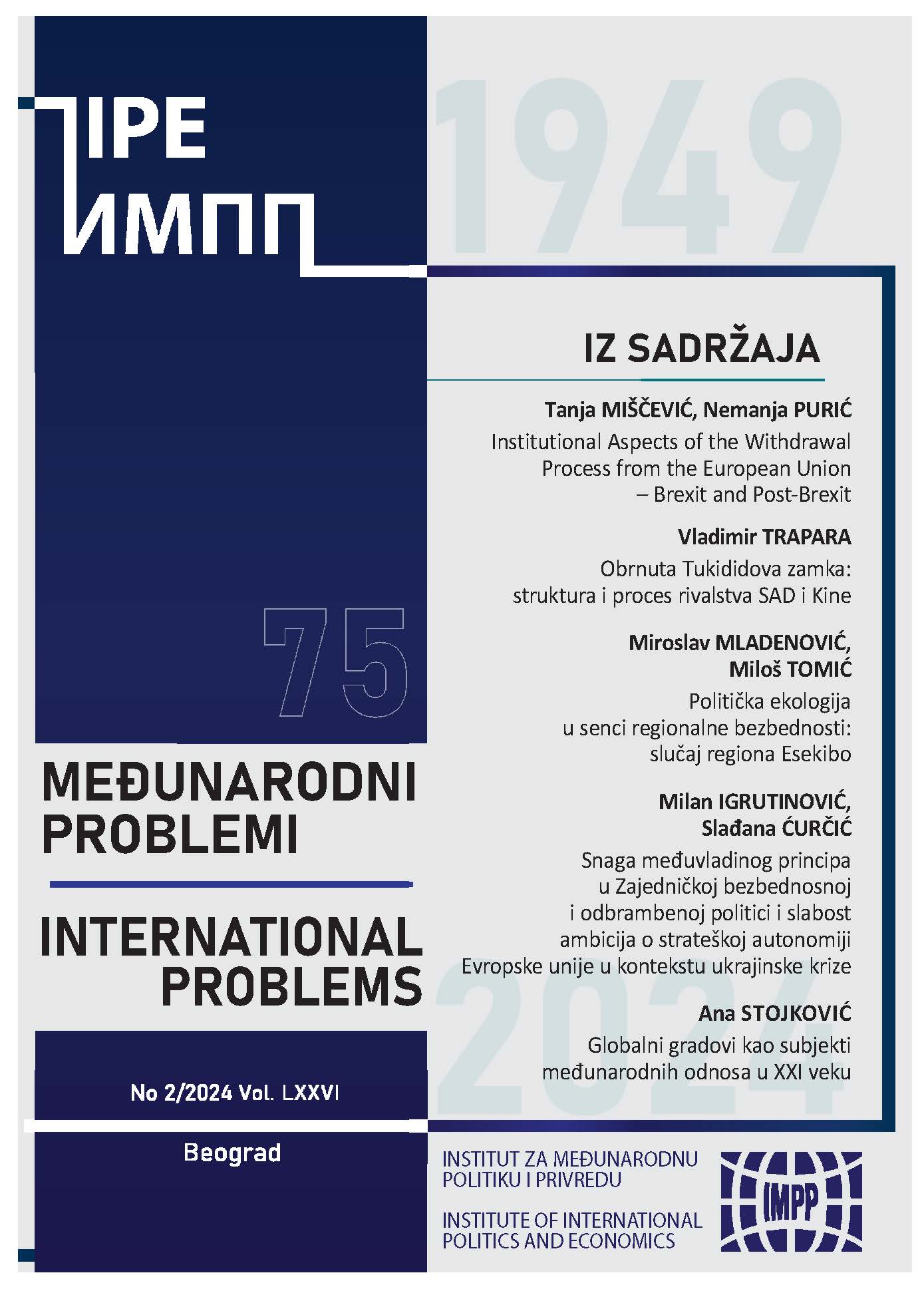Snaga međuvladinog principa u Zajedničkoj bezbednosnoj i odbrambenoj politici i slabost ambicija o strateškoj autonomiji Evropske unije u kontekstu ukrajinske krize
The Strength of the Intergovernmental Principle in the Common Security and Defence Policy and the Weakness of the EU's Strategic Autonomy Ambitions in the Context of the Ukrainian Crisis
Author(s): Milan Igrutinović, Slađana ĆurčićSubject(s): Politics / Political Sciences, Politics, Security and defense, Military policy, EU-Approach / EU-Accession / EU-Development, Geopolitics, Peace and Conflict Studies
Published by: Институт за међународну политику и привреду
Keywords: European Union; war in Ukraine; military aid; defense; NATO; security actorness
Summary/Abstract: Since the beginning of Russia's open military attack on Ukraine in February 2022, the European Union has introduced thirteen new packages of economic sanctions against Russia. Moreover, in addition to direct economic aid to Kyiv, Brussels and a number of member states have pursued a policy of sending military aid in various forms, mostly in accordance with their own assessments of security interests and available capabilities. The EU established a military assistance mission (EUMAM Ukraine) and began to use part of the existing programs, such as the European Peace Facility, for the purpose of equipping the Ukrainian army. In addition, the perception of Russia as a long-term threat is increasingly influencing new plans in the field of military industry and future armaments. In this paper, we want to analyse the cooperation of these steps taken by the EU and which member states take independently or (and) in cooperation through NATO as the dominant military alliance on European soil. Our argument is that the practice of this military crisis shows that member states to a negligible extent tend to use the Common Security and Defense Policy as a framework for their actions, to strengthen and build it in the long term, but tend to use either the bilateral ties - towards Ukraine and among each other, or the existing framework of NATO. This argumentation confirms the postulates of the new intergovernmentalism in the study of CSDP. In political practice, the intergovernmental principle remains dominant in the CSDP domain, and shows that the current practice is not effectively aimed at strengthening the CSDP nor does it provide a new synergistic effect, and that relatively, in the broader balance of power, the EU loses compared to the existing ties within the NATO pact and new flexible forms of bilateral and multilateral cooperation of its member states, outside the CSDP.
Journal: Међународни проблеми
- Issue Year: LXXVI/2024
- Issue No: 2
- Page Range: 223-248
- Page Count: 26
- Language: Serbian

